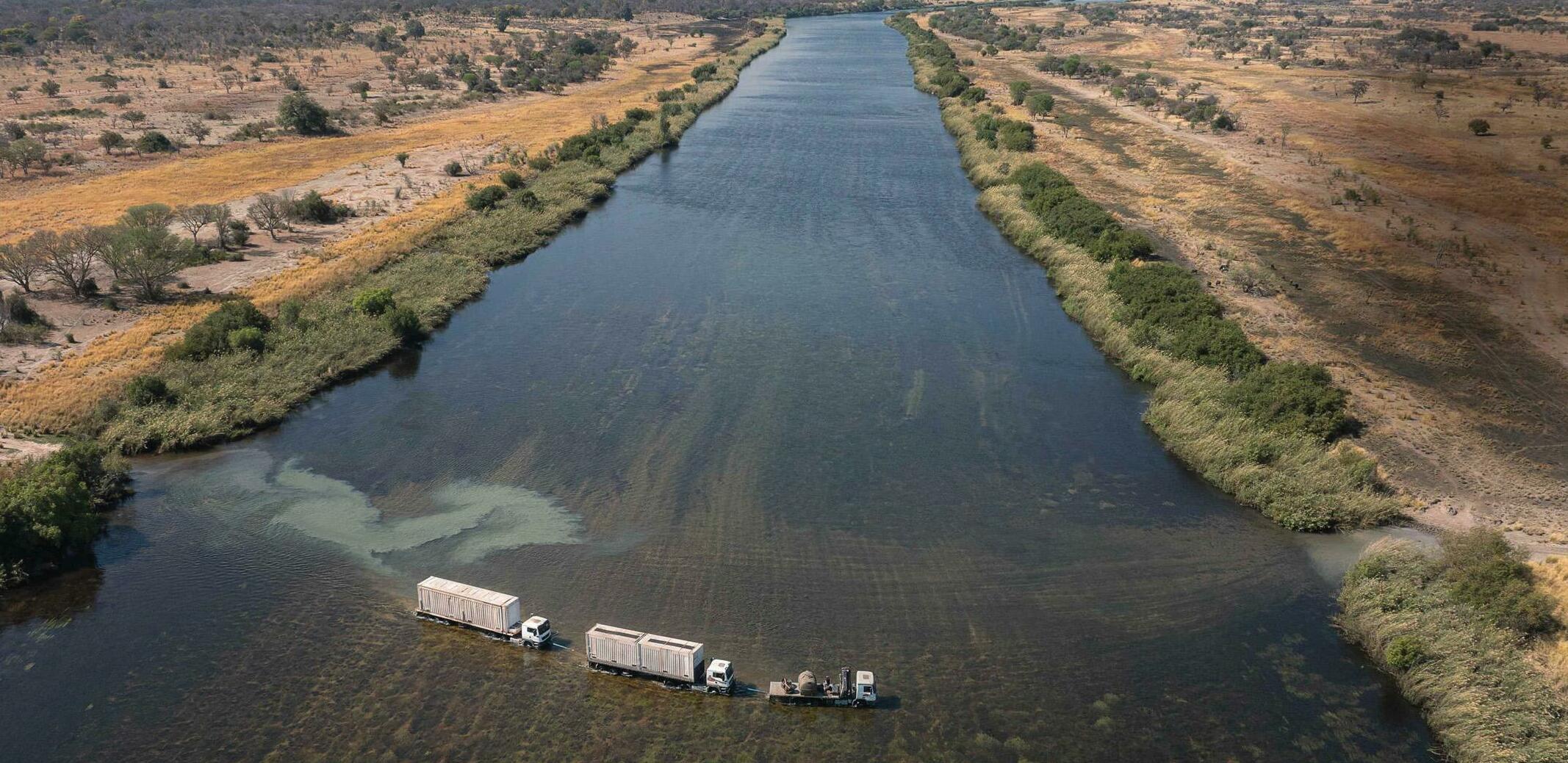Prøve GULL - Gratis
CROSS COUNTRY
BBC Wildlife
|March 2025
Translocating elephants is no mean feat-but it's helping this iconic mammal to reclaim its historic lands

THE AIR TINGLES WITH NERVOUS excitement as Alex Oelofse, owner of Okonjati Game Reserve in Namibia, lifts off in a helicopter. Hanging out the side, dart gun at the ready, is vet Hans Reuter, whose sights are set firmly on the elephants below. As the chopper approaches, the animals tense then flee, kicking up a cloud of dust in the golden morning light.
It's August 2024 and the elephants are destined for a new life north of the border. Okonjati's elephant population has grown to double what the land can sustain, a situation exacerbated by six years of drought, and several family groups need to be relocated. Finding a new home for the herd has proved difficult. In much of the species' range, space for elephants has been squeezed to the limit, and burgeoning human and elephant populations increasingly come into conflict.
 "Culling isn't really an option, we'd really rather move them," says Alex. "But at some point, you need to make a decision - how are you going to manage the herd before they destroy everything?"
"Culling isn't really an option, we'd really rather move them," says Alex. "But at some point, you need to make a decision - how are you going to manage the herd before they destroy everything?"Just as time and options were running out, Alex heard that Cuatir Conservation Area, a private conservation project in south-east Angola, was looking for elephants. Made up of 20,000ha of pristine wilderness nestled in the crook of the Cubango River - a tributary of the Okavango that feeds into the Okavango Delta Cuatir had ideal elephant habitat but with no elephants. It was the perfect solution.
 THE CHALLENGE WOULD BE actually getting the elephants there. Cuatir is only 800km from Okonjati but, with the condition of the roads on the Angolan side of the border, not to mention the river crossings, translocation would be very difficult, to say the least.
THE CHALLENGE WOULD BE actually getting the elephants there. Cuatir is only 800km from Okonjati but, with the condition of the roads on the Angolan side of the border, not to mention the river crossings, translocation would be very difficult, to say the least.Denne historien er fra March 2025-utgaven av BBC Wildlife.
Abonner på Magzter GOLD for å få tilgang til tusenvis av kuraterte premiumhistorier og over 9000 magasiner og aviser.
Allerede abonnent? Logg på
FLERE HISTORIER FRA BBC Wildlife

BBC Wildlife
"I was terrified the elephant would ram us"
African elephant in Kenya
2 mins
January 2026

BBC Wildlife
ALL YOU EVER NEEDED TO KNOW ABOUT THE Fennec fox
THE FENNEC FOX IS THE SMALLEST fox in the world, with a body length that can be as little as 24cm.
3 mins
January 2026

BBC Wildlife
INTO THE PLASTISPHERE
A unique synthetic ecosystem is evolving in our oceans – welcome to the plastisphere
7 mins
January 2026

BBC Wildlife
“More than half of all animal life exists in a parasitic relationship, and all life lives in symbiosis”
Our survival depends on species evolving to live together - but some relationships take dark turns
7 mins
January 2026

BBC Wildlife
Are animals able to dream?
SLEEP IS A MYSTERIOUS THING. FOR A long time, we weren't sure why we do it.
1 mins
January 2026

BBC Wildlife
Does a cuckoo know it's a cuckoo?
ABSURD LITTLE BIRDS ACROSS THE world lay their eggs in the nests of other species, leaving the hapless parents to raise a changeling at the expense of their own offspring.
2 mins
January 2026

BBC Wildlife
Orcas killing young sharks
Juvenile great whites are easy prey for orca pod
1 mins
January 2026

BBC Wildlife
Ocean goes on tour
Acclaimed film touring the UK, backed by live orchestra and choir
1 min
January 2026

BBC Wildlife
Feisty bats hunt like lions
Winged mammals use a 'hang and wait' strategy to take down large prey
1 mins
January 2026

BBC Wildlife
SNAP-CHAT
Richard Birchett on magical merlins, wily coyotes and charging deer
2 mins
January 2026
Listen
Translate
Change font size
